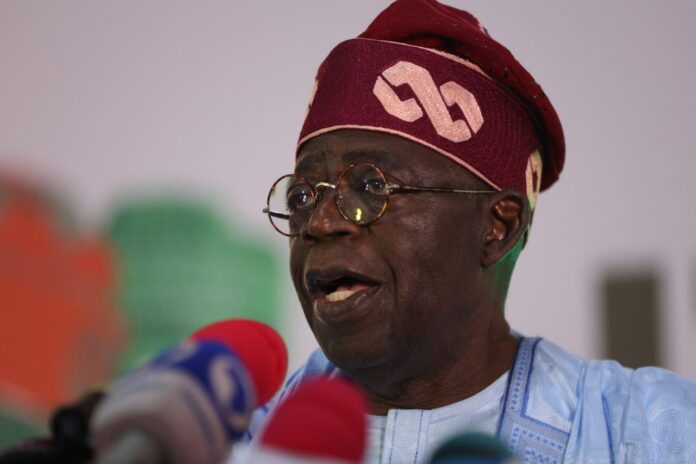Tinubu’s One Year and Tech Transformation in Nigeria
By Abbas Badmus,
As Bola Ahmed Tinubu marks his first year as Nigeria’s President, the spotlight is on his administration’s strides in catalyzing technological advancement in the country.
Tinubu’s administration, upon its advent, outlined an ambitious plan for a digital Nigeria, aiming to transform the country into a leading tech hub in Africa.
The government’s digital economy blueprint emphasizes boosting internet connectivity, enhancing cybersecurity, and fostering innovation through supportive policies and investments.
Connectivity and Infrastructure
One of the foremost priorities for Tinubu’s administration is improving internet connectivity across the country. Nigeria, with a population exceeding 200 million, has significant disparities in internet access between urban and rural areas.
The President has pledged to enhance broadband penetration, aiming to reach 90% coverage by 2025. This involves substantial investments in fiber-optic networks and the deployment of 5G technology.
“Improving connectivity is crucial for Nigeria’s tech ecosystem,” says Dr. Akinwale Olukotun, a telecommunications expert.
“Enhanced broadband access will facilitate better online services, support remote education, and empower businesses to leverage digital tools more effectively.”
Cybersecurity Enhancements
As Nigeria moves towards a more digitized economy, cybersecurity becomes paramount. Tinubu’s administration recognizes the growing threat of cyber-attacks and is committed to strengthening the nation’s cyber defenses.
Plans are in place to establish a National Cybersecurity Agency to coordinate efforts across various sectors.
“Robust cybersecurity measures are essential to protect Nigeria’s digital infrastructure and build trust in online services,” notes Dr. Fatima Yusuf, a cybersecurity analyst.
“Investing in cybersecurity not only safeguards data but also encourages foreign investment in the tech sector.”
Nurturing Innovation and Startups
Nigeria’s tech scene is vibrant, with cities like Lagos becoming hotspots for startups and innovation. Tinubu’s leadership aims to foster this growth by creating an enabling environment for entrepreneurs and innovators.
Supportive Policies and Funding
The Tinubu administration has introduced policies reducing bureaucratic hurdles for startups and provide tax incentives for tech companies.
Additionally, there are plans to establish a $500 million innovation fund to support emerging tech enterprises.
“Government support can significantly accelerate the growth of startups,” says Ifeanyi Ubah, a venture capitalist.
“Access to funding and a conducive regulatory environment will encourage more young Nigerians to embark on entrepreneurial ventures, driving economic growth.”
Tech Education and Skill Development
To sustain the tech boom, there is a critical need for a skilled workforce. Tinubu’s administration has committed to revamping the education system to include more tech-focused curricula.
Initiatives like coding bootcamps, partnerships with tech giants for training programs, and scholarships for STEM (Science, Technology, Engineering, and Mathematics) students are on the agenda.
“Developing tech talent locally is vital for the long-term success of Nigeria’s tech industry,” asserts Dr. Chidi Nwafor, an education policy expert.
“Investing in education ensures that we have the human resources needed to drive innovation and maintain competitiveness in the global market.”
Leveraging Technology for Governance
In addition to bolstering the tech sector, Tinubu’s administration plans to leverage technology to improve governance and public services.
E-Government Initiatives
The Tinubu government is set to expand its e-government services, making public services more accessible and efficient.
The initiatives it plans to unveil include the digitalization of government records, online portals for various citizen services, and the implementation of blockchain for transparency in public transactions.
“E-governance can revolutionize how citizens interact with the government,” explains Adeola Adedipe, a digital transformation consultant.
“It can reduce corruption, streamline processes, and make the government more accountable to the people.”
Smart City Projects
Urban centers like Lagos are expected to see smart city projects that integrate technology to manage resources more efficiently. This includes intelligent traffic management systems, smart grids for better energy distribution, and IoT (Internet of Things) solutions for waste management.
“Smart city initiatives can address some of the chronic issues faced by our urban areas,” says Bayo Agbaje, an urban planner.
“By harnessing technology, we can improve the quality of life for residents and make our cities more sustainable.”
Despite these optimistic projections, several challenges could impede progress. Issues such as corruption, political instability, and inadequate infrastructure remain significant hurdles.
Additionally, the global economic climate and fluctuating oil prices, which impact Nigeria’s economy, could affect funding and investment in the tech sector.
As President Bola Ahmed Tinubu completes his first year in office, the trajectory for technological advancement in Nigeria looks promising but fraught with challenges.
The administration’s focus on connectivity, cybersecurity, innovation, and e-governance has the potential to transform Nigeria into a digital powerhouse.
However, realizing this vision will require steadfast commitment, transparent governance, and the ability to navigate and adapt to the dynamic tech landscape.
The coming years will be critical in determining whether these ambitious plans come to fruition, ultimately positioning Nigeria as a leader in Africa’s tech revolution.
















